It’s all too easy to let your health take the backseat when you are sidetracked with revision. Trust me, I’ve been there and done exactly that – to the point of giving myself RSI so badly I couldn’t hold a pen three days before my second year exams. Bad idea…
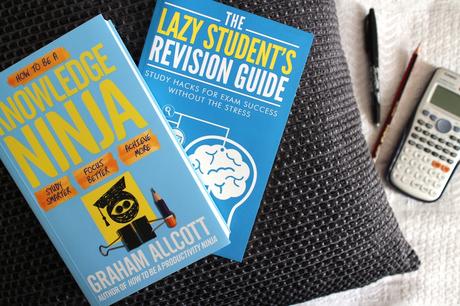
Eat Well and Often
It’s easy to me to say (cooking is my favorite form of procrastination!) but making sure you eat well during the exam period is key to sucess. It doesn’t have to take long, my favorite meals are stir frys and salads, but a good meal will keep your concentrating and improve your mood. Revision snacks are also important – I recommend flapjacks!
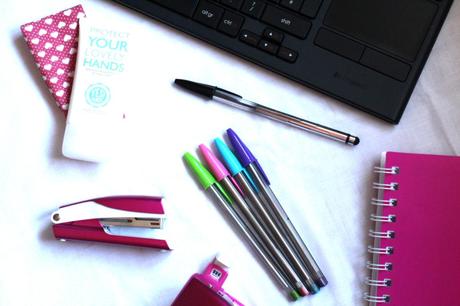
Vary Activities
This is where I went wrong. Doing maths means reading is difficult, so I relied on taking notes and practicing questions – completely over-working my hand. If I could have second year again my notes would all be complete, leaving me time to read through and just focus on exam questions.
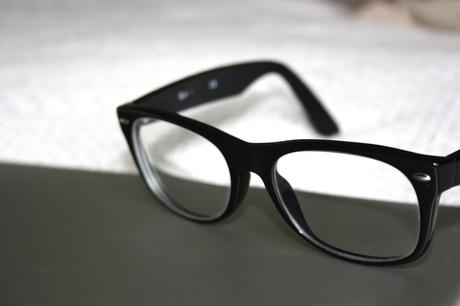
Ensure Your Work Station is Comfortable
“It may sound obvious but it’s best to sit at a proper desk so that you are not crouched,” advises Mesha.” Your screen should be a little below eye level and at least half a metre away. It is also important to have suitable lighting to reduce glare.”

Rest Regularly
“Students who focus intensely on screens and text books for a significant period of time are at risk of pseudomyopia – a temporary form of short-sightedness which causes blurry distance vision and can last for several days,” says Mesha. To prevent the condition, caused by spasm of the ciliary muscle in the eye, Mesha recommends the 20-20-20 rule; looking away every 20 minutes at something at least 20ft away for at 20 seconds.
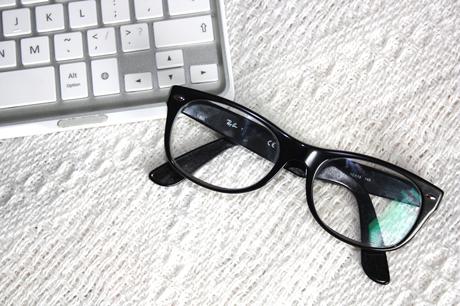
Be Aware of Harmful Light
“Exposure to the blue light emitted by computer screens and other digital devices including smartphones and tablets can damage the retinal cells and is linked to a greater risk of macular degeneration, a leading cause of blindness,” says Mesha. She recommends regular breaks and trying specialist glasses, such as Neva Max Blue UV, stocked by Optical Express, that filter the harmful component in blue light. Mesha also warns that viewing digital devices before bedtime can upset your sleeping pattern and take you longer to fall asleep as the melatonin hormone, which prompts tiredness, is reduced.
Blink Frequently
Mesha says: “People blink less frequently when using computers so stick a Post-it to your screen to remind yourself if need be. If your eyes feel dry and gritty lubricating eye drops can provide relief and if you’re working from home consider using a humidifier to add moisture to the air. If you naturally suffer from dry eyes, it is worth consulting an optician as an underlying condition may be to blame.”
Use Correct Eyewear If Necessary
“Long-sighted people may be able to see adequately close up if the strength of the prescription is low and not require prescribed glasses but they may require a small prescription to undertake close work for long periods,” says Mesha. “Contact lens wearers should also bear in mind that some lenses have a time limit to the number of hours they can work. If you plan to study into the evening and there is a chance you could become too tired and forgetful to remove your lenses, consider switching to contact lenses with increased oxygen permeability for the duration of the exam season.”
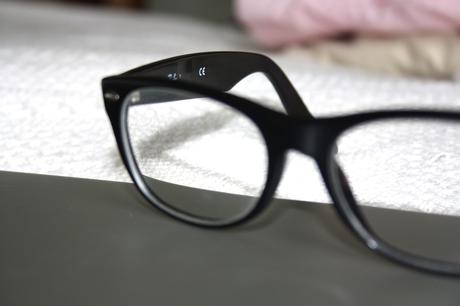
Have an Eye Test
“If you experience headaches, discomfort or are in any way worried about your eyesight consult an optician,” Mesha advises. “It is recommended that most people have an eye test every two years but recent research suggests that about 40% of young people are not going for regular eye tests.”
Post sponsored by Optical Express who sent over the eye-health tips and a voucher for me to use against their products. All opinions are my own.
I’ve also found that using Optrex eyedrops* mid-way through a study period really helps – I get quite itchy eyes so this refreshes them and makes me feel way more focussed! What are you top tips for staying healthy during the exam period?
